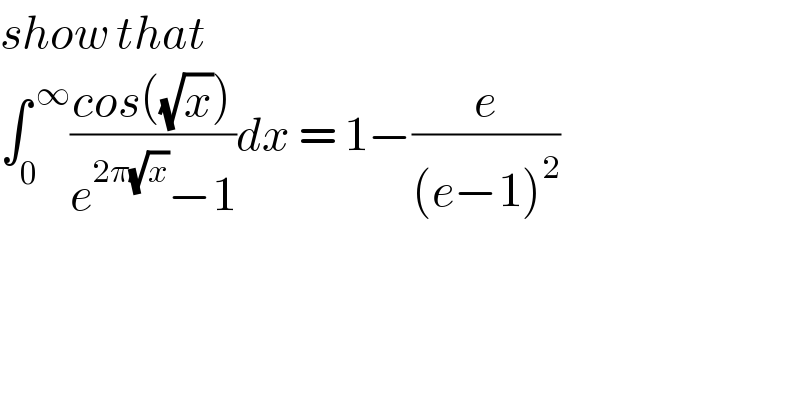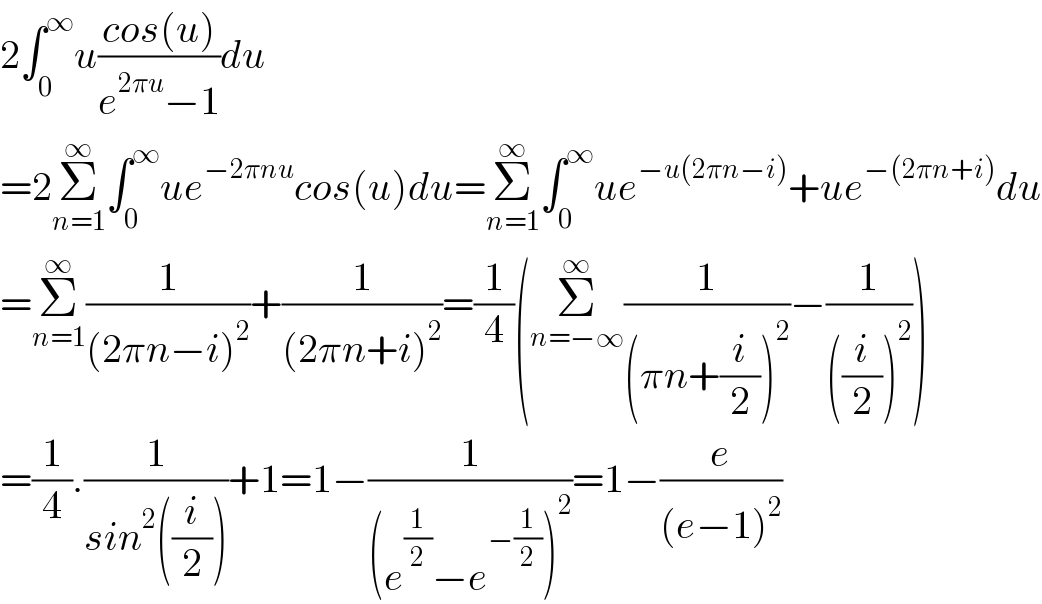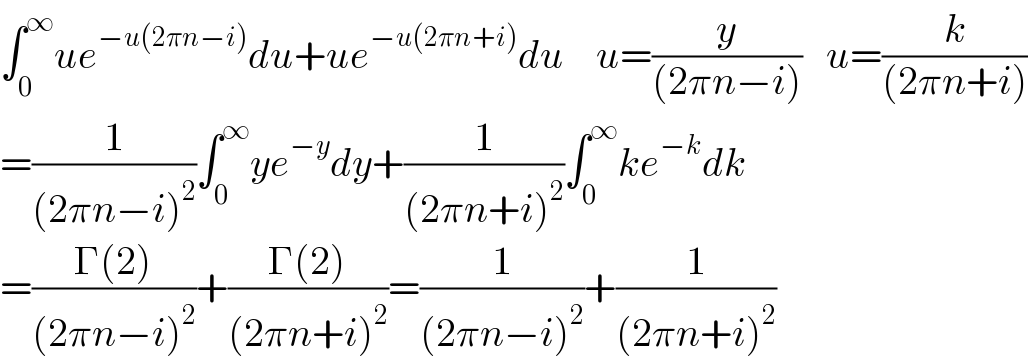
Question and Answers Forum
Previous in Relation and Functions Next in Relation and Functions
Question Number 139612 by 676597498 last updated on 29/Apr/21

Answered by Dwaipayan Shikari last updated on 29/Apr/21

Commented by 676597498 last updated on 29/Apr/21

Commented by Dwaipayan Shikari last updated on 30/Apr/21

Commented by 676597498 last updated on 30/Apr/21

Commented by Dwaipayan Shikari last updated on 30/Apr/21

Commented by mnjuly1970 last updated on 30/Apr/21

